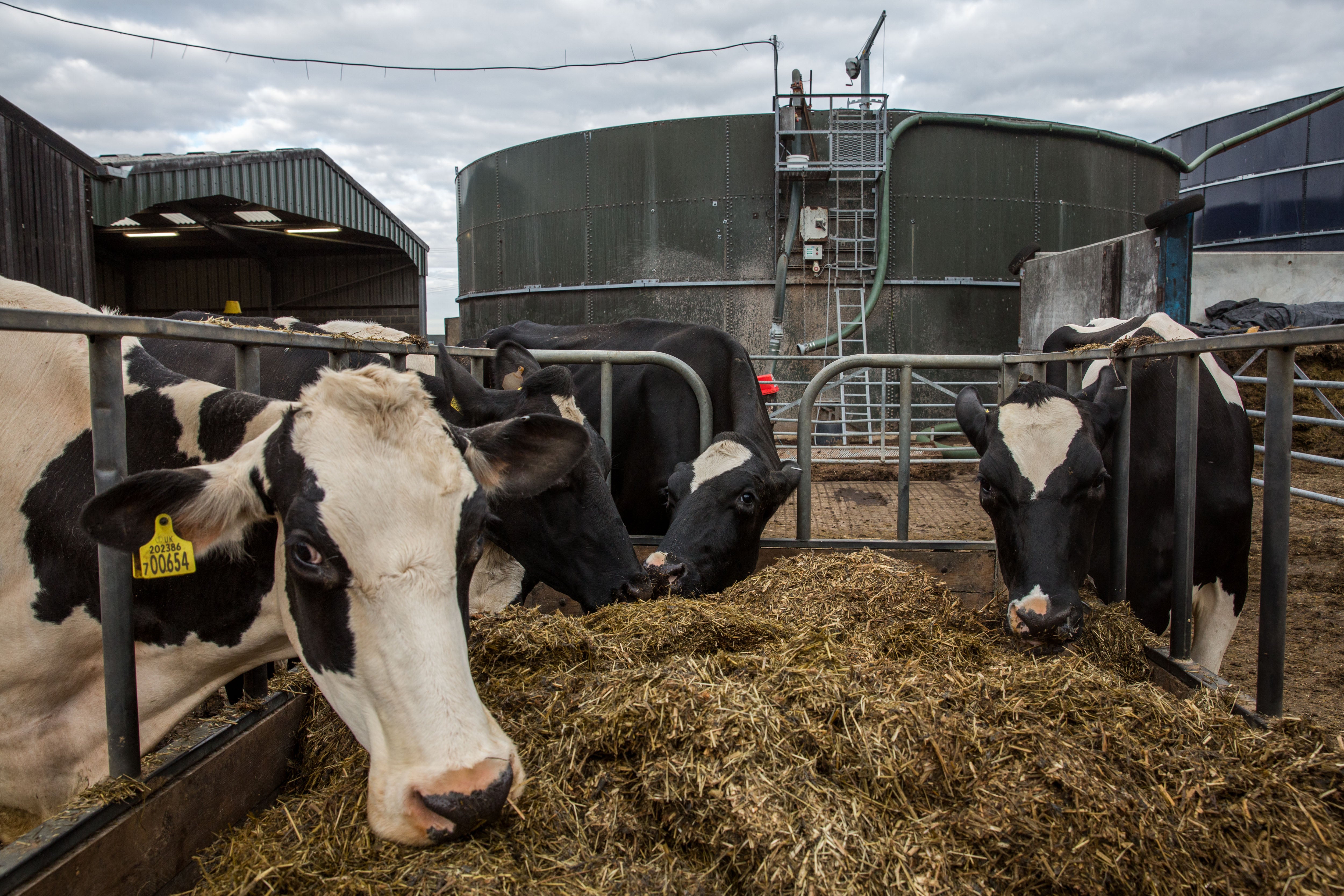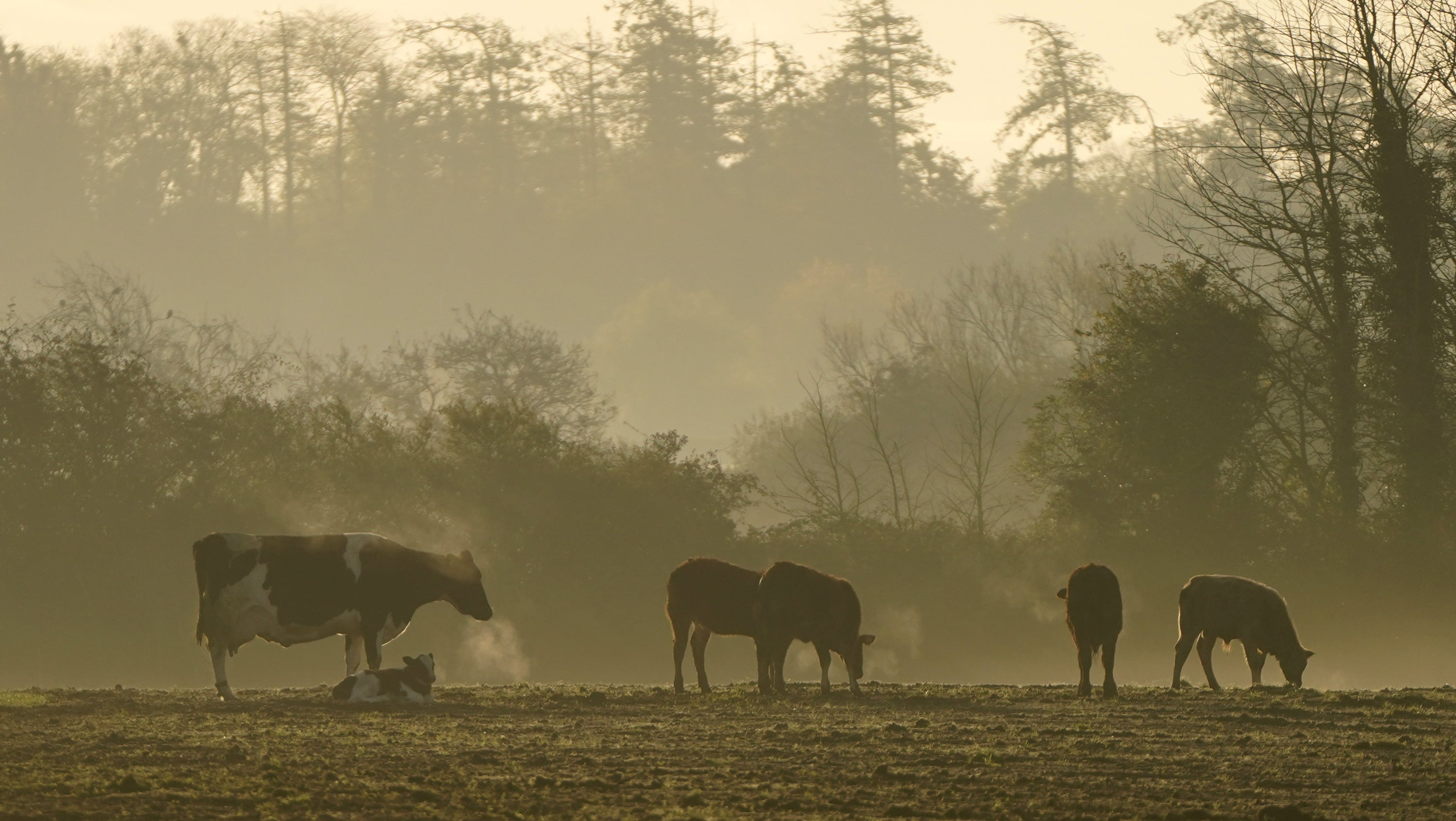Mad cow disease case confirmed on Scottish farm
Precautionary movement restrictions have been put in place on the farm and other animals

Your support helps us to tell the story
From reproductive rights to climate change to Big Tech, The Independent is on the ground when the story is developing. Whether it's investigating the financials of Elon Musk's pro-Trump PAC or producing our latest documentary, 'The A Word', which shines a light on the American women fighting for reproductive rights, we know how important it is to parse out the facts from the messaging.
At such a critical moment in US history, we need reporters on the ground. Your donation allows us to keep sending journalists to speak to both sides of the story.
The Independent is trusted by Americans across the entire political spectrum. And unlike many other quality news outlets, we choose not to lock Americans out of our reporting and analysis with paywalls. We believe quality journalism should be available to everyone, paid for by those who can afford it.
Your support makes all the difference.A case of mad cow disease has been confirmed on a farm in Scotland.
Atypical bovine spongiform encephalopathy (BSE), commonly known as mad cow disease, has been confirmed in a cow on a farm in Dumfries and Galloway.
The Scottish government said precautionary movement restrictions have been put in place at affected premises and cover animals known to have been in contact with the case.
Atypical BSE is not known to be a risk to public health and the animal did not enter the human food chain.
Further investigations to identify the origin of the disease are ongoing as is standard procedure for a confirmed case.

Authorities said that the case was identified as a result of routine yet intensive BSE surveillance and stringent control measures are in place.
Scotland’s agriculture minister Jim Fairlie said: “Following confirmation of a case of atypical BSE in Dumfries and Galloway, the Scottish government and other agencies took swift and robust action to protect the agriculture sector.
“The fact we identified this isolated case so quickly is proof that our surveillance system for detecting this type of disease is working effectively.
“I want to thank the animal’s owner for their diligence. Their decisive action has allowed us to identify and isolate the case at speed which has minimised its impact on the wider industry.”
The monitoring of BSE has been carefully controlled in the UK, with all cows that die over the age of four on a farm routinely tested for the disease.
It follows the crisis of 1986 when 180,000 cattle were infected and 4.4 million slaughtered in order to eradicate it.
Ian McWatt, deputy chief executive of Food Standards Scotland, said: “There are strict controls in place to protect consumers from the risk of BSE.
“Consumers can be reassured that important protection measures remain in place and Food Standards Scotland official veterinarians and meat hygiene inspectors working in abattoirs will continue to ensure that safety of consumers remains a priority.
“We will continue to work closely with Scottish government, other agencies and industry at this time.”
More follows on this story
Join our commenting forum
Join thought-provoking conversations, follow other Independent readers and see their replies
Comments